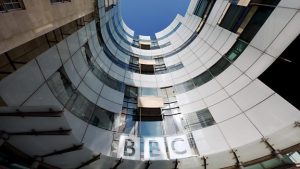
After more than 40 years of operation, DTVE is closing its doors and our website will no longer be updated daily. Thank you for all of your support.
BBC sets out launch plan for limited free licence for over-75s
 UK public broadcaster the BBC is to launch its delayed licence fee scheme for the over 75s in August, giving a free licence to senior citizens who receive Pension Credit rather than the current blanket free licence provided to all in that age group.
UK public broadcaster the BBC is to launch its delayed licence fee scheme for the over 75s in August, giving a free licence to senior citizens who receive Pension Credit rather than the current blanket free licence provided to all in that age group.
The BBC Board has confirmed it will begin the new scheme covering the over 75s licence fee concession on 1 August this year. The BBC delayed the introduction of the new scheme as a result of the COVID-19 pandemic, at the cost of £70 million (€78 million) in revenue.
The BBC said that implementation of the new scheme will be COVID-19 safe and no-one would be expected to leave home to claim a free licence or pay for one.
TV Licensing, the organisation responsible for collecting the fee, ill be writing to all over 75 licence holders with guidance. For those who now need to pay, they will have a range of options and can choose to pay weekly, fortnightly, or monthly, or in one payment.
The new scheme means households – which include someone aged over 75 in receipt of Pension Credit – will be eligible for a free TV licence, funded by the BBC. Around 1.5 million households could be eligible and 450,000 have already applied for a free licence.
The UK government took the decision to stop funding for free licences in 2015 and Parliament – gave the responsibility to the BBC Board to make the decision on the future of the concession.
The BBC has emphasised that at the time of the settlement in 2015, both government ministers and the BBC were clear that reform of the concession was a possibility; and no pledge was made by the BBC that the universal free licence for over 75s would be continued.
The BBC has come under political pressure, including public comments by the prime minister, to continue to provide free licences for all in that age group.
Continuing with the Government scheme would have cost £745 million. The BBC has said that in practice, this would have meant closures of BBC Two, BBC Four, the BBC News channel, the BBC Scotland channel, BBC Radio 5 Live, and a number of local radio stations, as well as other cuts and reductions.
The new scheme will cost the BBC around £250 million by 2021/22. The cost of this new scheme will require the BBC to divert some spending on programmes and services, alongside continuing to find new savings while expanding its commercial revenue to cope.
“The decision to commence the new scheme in August has not been easy, but implementation of the new scheme will be Covid-19 safe. The BBC could not continue delaying the scheme without impacting on programmes and services,” said BBC chairman Sir David Clementi.
“Around 1.5 million households could get free TV licences if someone is over 75 and receives Pension Credit, and 450,000 of them have already applied. And critically it is not the BBC making that judgement about poverty. It is the Government who sets and controls that measure. Like most organisations the BBC is under severe financial pressure due to the pandemic, yet we have continued to put the public first in all our decisions. I believe continuing to fund some free TV licences is the fairest decision for the public, as we will be supporting the poorest oldest pensioners without impacting the programmes and services that all audiences love.”


